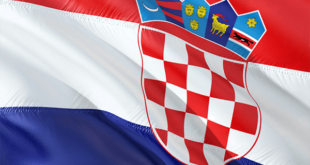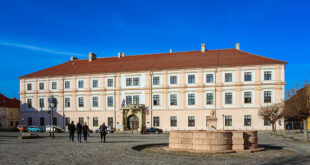For international students considering Croatia, the appeal of its breathtaking scenery and lower cost of living is undeniable. At the same time, managing finances in an unfamiliar country remains a challenge. Fear not, this guide is here to help you find your way through the financial maze. From housing to daily living expenses, we’ll cover every aspect of the cost of living in Croatia, with invaluable insights into cost-saving strategies and resources exclusively available to international students. Armed with the knowledge to navigate the financial hurdles of your academic journey, you can confidently embark on your study adventure in Croatia.
Table of Contents
Is Croatia a Good Country for International Students?
Croatia presents itself as a favorable option for international students, especially when considering the cost of living. Life in the country is characterized by a relaxed pace, with Croatians valuing leisure time and embracing a “work-to-live” philosophy. The standard of living in Croatia is comparable to that of other Central and Eastern European countries, although slightly lower than in Western Europe.
Since joining the European Union in 2013, Croatia has seen an improvement in its standard of living. It also ranks 15th in the Global Peace Index, making it an attractive choice for various demographics such as families, digital nomads, retirees and, of course, international students.
The blend of historic cities with modern amenities, along with accessible public transportation and proximity to the rest of Europe, adds to Croatia’s appeal as an expat destination. International students can expect a decent quality of life without experiencing significant financial strain, owing to the country’s reasonable living expenses.
Check here our list of the main reasons to study abroad in Croatia.
Average Living Cost in Croatia
The average living cost for international students in Croatia is around €600-€800 per month, varying based on factors like accommodation type and city.
Touristic destinations such as Dubrovnik and Split tend to have higher expenses. Zagreb and Rijeka offer more affordable living options with good public transportation.
Budgeting around €300 per month for accommodation is advisable, including utility bills. Moreover, single rooms are also priced at this range and private apartments possibly reaching €600 monthly.
Public transportation costs approximately €30 for a monthly pass. While expenses like food, utilities, and miscellaneous items sum up to around €790 per month in Zagreb, depending on the student’s lifestyle.
All in all, however, Croatia generally offers a cost-effective study environment compared to other European destinations.
Living Cost in Croatia: Student Accommodation
It’s worth noticing that in Croatia, students must secure accommodation before they set foot in Croatia. Ideally, they should start searching once they have secured admission at their university of choice.
Generally, students have various options for accommodation, catering to different preferences and budgets. The primary types of student accommodation available include rented rooms, dormitories, and private housing.
Public Student Dormitories
The most economical option for student accommodation in Croatia is public student dormitories. These dormitories, managed by Student Centres, offer shared rooms typically accommodating two students.
Facilities may include shared bathrooms, cafeterias, gyms, and computer labs. The cost of dormitory accommodation varies across cities. However, due to limited housing capacity, not all students, including international students, can secure dormitory rooms.
But for those fortunate enough to secure a spot in public student dormitories, the rent is highly affordable, typically around €125 per month for a shared room. Students must contact the International Cooperation Office at their chosen higher education institution to inquire about housing options.
Private Accommodation
Alternatively, students can opt for private accommodation, which offers more flexibility but at a higher cost. Private rentals vary depending on factors such as location, room size, and amenities.
On average, rent for a furnished, shared flat in Zagreb ranges from €200 to €500 per month, while in other cities, it averages around €250 per month. Despite the higher cost, private accommodation offers more flexibility and privacy.
Youth Hostels
Youth hostels serve as temporary or long-term housing options, often providing discounts for extended stays. While not as common as dormitories or private rentals, youth hostels offer a budget-friendly alternative for students seeking short-term accommodation.
Finding Student Accommodation in Croatia
Securing suitable accommodation is a crucial step for international students planning to study in Croatia. Several resources and strategies are available to assist students in finding accommodation.
University Assistance
Croatian universities offer extensive support to international students in finding accommodation. They provide resources such as lists of reputable real estate agents, websites, and social media groups specializing in student housing. Additionally, universities may facilitate connections with fellow students or alumni who can offer insights and assistance in the housing search.
Online Platforms
Several online platforms and websites cater to student accommodation in Croatia. Websites like Airbnb, Erasmusu, and HomeinZagreb offer listings for rental properties, enabling students to browse and book accommodation remotely. These platforms provide a convenient and accessible way to explore housing options before arriving in Croatia.
Local Resources
Checking local resources, such as Njuskalo.hr and Oglasnik.hr, can also help students find accommodation. Posting advertisements at faculties or seeking assistance from housing agents partnered with universities are additional avenues for finding suitable housing options.
Living Expenses in Croatia for International Students: Food Cost
When it comes to eating in Croatia, students should budget around €150 per month on average for food expenses.
Here’s a breakdown of typical food costs in Croatia:
Student restaurants (Mensas)
Student restaurants in big cities in Croatia offer subsidized meals to students with a valid SMART CARD(student identity card). A daily menu in these restaurants costs approximately €0.9, providing an affordable option for students.
Eating out
Croatia boasts a diverse culinary scene, with restaurants offering both national and international cuisine. Prices vary in general between €15 and €35 for a meal, but dining out remains a pleasant experience without breaking the bank.
Grocery shopping
For those cooking at home, grocery prices are reasonable. For instance, a liter of milk costs around €0.8, and a kilogram of apples is about €1.06. Moreover, 12 eggs cost €2.13 and a loaf of bread for two people costs €0.9.
Optimizing Food Budget for International Students
To stretch their food budget further, international students can follow these tips:
- Take advantage of student restaurants: Take advantage of subsidized meals at student restaurants by using the SMART CARD. This allows students to enjoy nutritious meals at a fraction of the cost compared to eating out.
- Cook at home: Consider cooking meals at home rather than eating out frequently. Buying groceries and preparing meals can be more economical and allows for better control over ingredients and portions.
- Plan meals and budget: Plan meals in advance and create a budget to avoid overspending. Look for affordable recipes and buy ingredients in bulk when possible to save money in the long run.
- Explore local markets: Visit local markets for fresh produce and ingredients at lower prices compared to supermarkets. Bargaining may also be possible, helping students get the best deals.
Lastly, water in the public water supply system in Croatia is drinkable and of high quality. So you can drink it without any problem.
Transportation Cost and Options for Students in Croatia
Transportation for students in Croatia is affordable, with various options available to navigate the cities conveniently. Here’s what you need to know:
Cost of Local Transportation
On average, students can expect to spend around €30 per month on local transportation, making it budget-friendly for students.
Types of Transportation
In Croatian cities like Zagreb, students can utilize the following modes of public transportation:
- Trams
- Buses
- City railway
They all operate throughout the day and night, providing easy access to different parts of the city. Students can purchase tickets onboard or at newsstands, with options for half-hour or hour-long validity.
Additionally, monthly or annual passes are available at reduced rates, providing further savings for students. Taxis are also available but tend to be more expensive compared to public transportation options.
Living Cost in Croatia: Fun Activities and Leisure Spending
Croatia offers a plethora of fun activities for students to enjoy during their free time, without breaking the bank:
Outdoor Adventures
Explore Croatia’s diverse terrain, from plains and lakes to wooded mountains and the Adriatic coastline. Students can embark on weekend getaways to nearby destinations like Slovenia, Hungary, and Bosnia and Herzegovina.
Cultural Exploration
Immerse yourself in Croatian culture by attending public events, festivals, and local customs. Visit theatres, concert halls, cinemas, galleries, and museums in Zagreb, the country’s cultural hub.
In terms of leisure spending, students can manage their budgets wisely:
Budget-Friendly Options
Many leisure activities in Croatia are affordable or even free. Students can enjoy nature hikes on Medvednica Mountain, relax at Jarun Sports and Recreation Centre, or engage in indoor sports at various sports centers.
Cultural Events
Take advantage of discounted student tickets for cultural events and festivals. With numerous options for entertainment, from discos to cafés, students can socialize and unwind without overspending.
Student Work in Croatia
International students have the opportunity to work part-time in Croatia through the Student Service, which connects students with potential employers. Positions offered are part-time and temporary, allowing students to balance work with their studies.
Both EU citizens and third-country nationals can access the Student Service for employment opportunities.
How Much International Students Can Earn in Croatia?
The minimum hourly wage in 2024 is €5.25, with additional compensation for work on Sundays, public holidays, and nights. Employers are required to cover health and pension insurance for student employees, along with intermediary service fees to the Student Service.
Earning Potential and Taxation
Students can earn up to €10,080 net annually without taxation on their student work income. However, additional income taxes apply if the earnings exceed this amount. Double taxation may be avoided through treaties between Croatia and the student’s home country. For detailed tax information, students can consult the Croatian Tax Administration office.
Conclusion
Managing the living cost in Croatia as an international student can be a significant concern. But with the right information and preparation, it’s entirely manageable.
By breaking down the various expenses and offering practical tips, this guide is meant to provide clarity and insight into what to expect financially while studying in Croatia.
Remember that while certain costs, such as tuition, are fixed, others, such as housing and daily expenses, can vary based on personal choices and preferences. That’s why it’s important to budget wisely and explore all available resources, including scholarships and part-time work opportunities.




 Aljawaz Your guide to study abroad
Aljawaz Your guide to study abroad 





